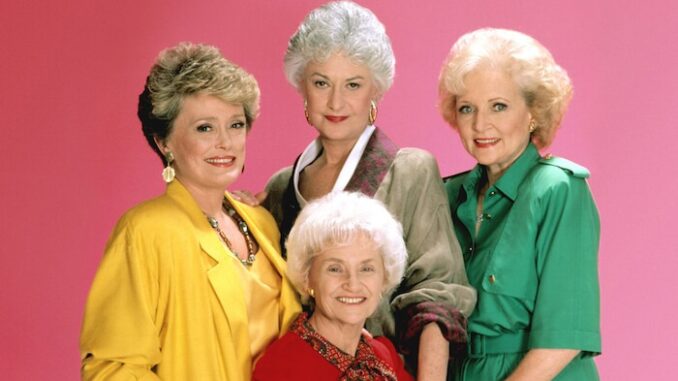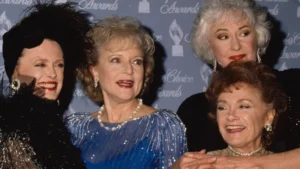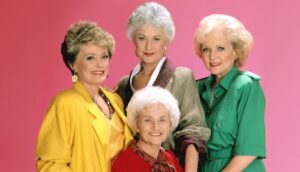
The beloved sitcom “The Golden Girls” captivated audiences for seven iconic seasons, but behind the scenes, the dynamic between its lead actresses was not always as harmonious as the show’s ensemble.
In a recent interview, the legendary Betty White, who portrayed the endearing and quirky Rose Nylund, shed light on her complicated relationship with her co-star, the late Bea Arthur, who played the sharp-tongued and cynical Dorothy Zbornak.

Despite the undeniable on-screen chemistry and camaraderie shared by the four Golden Girls, White revealed that her rapport with Arthur was often strained, with the latter expressing a clear dislike for her fellow co-star.
“Bea was not as comfortable with the goofiness of the character as the rest of us were,” White explained. “She was a little more serious, a little more reserved, and I think she sometimes didn’t know what to make of my [Rose’s] more lighthearted approach.”
This difference in performance styles and comedic sensibilities created a palpable tension on set, with Arthur at times seeming unamused by White’s more eccentric and slapstick-driven antics.
“There were moments where Bea would just kind of roll her eyes at me, or make a comment under her breath about how I was ‘overacting’ or ‘going too far’ with a bit,” White recalled. “It was clear she didn’t always appreciate the way I brought Rose to life.”
However, despite this underlying friction, White maintains that she never took Arthur’s behavior personally, understanding that it stemmed from a fundamental difference in their respective comedic approaches.
“Bea was a brilliant actress, and she brought such depth and nuance to Dorothy,” White acknowledged. “I respected her immensely, even if we didn’t always see eye to eye on the execution of the material.”
In the end, the two women managed to put aside their differences and deliver unforgettable performances that have cemented the Golden Girls’ legacy as one of the most iconic and beloved ensembles in television history.
“At the end of the day, we were a team, and we were committed to making the show as great as it could be,” White said. “Any tension between Bea and me never got in the way of that.”

As the “Golden Girls” franchise continues to captivate new generations of fans, the revelations about the complexities of the cast’s relationships serve as a reminder that even the most revered and harmonious-seeming ensembles can harbor their own behind-the-scenes dramas.
But it is a testament to the skill and professionalism of the actors, and the enduring power of the stories they brought to life, that these internal dynamics never overshadowed the magic that unfolded on the screen.
